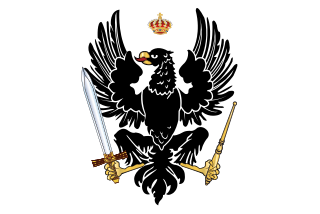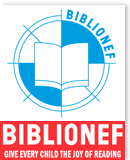
The Dutch West India Company or WICDutch pronunciation:[ʋɛstˈɪndisəkɔmpɑˈɲi] was a chartered company of Dutch merchants as well as foreign investors, formally known as GWC. Among its founders were Reynier Pauw, Willem Usselincx (1567–1647) and Jessé de Forest (1576–1624). On 3 June 1621, it was granted a charter for a trade monopoly in the Dutch West Indies by the Republic of the Seven United Netherlands and given jurisdiction over Dutch participation in the Atlantic slave trade, Brazil, the Caribbean, and North America.

Suriname, officially the Republic of Suriname, is a sovereign state in northern South America. Situated slightly north of the equator within the tropics, over 90% of its territory is covered by rainforests, the highest proportion of forest cover in the world. Suriname is bordered by the Atlantic Ocean to the north, French Guiana to the east, Guyana to the west, and Brazil to the south. It is the smallest country in South America by both population and territory, with around 612,985 inhabitants in an area of approximately 163,820 square kilometers. The capital and largest city is Paramaribo, home to roughly half the population.

Creole peoples may refer to different ethnic groups around the world. The term has been used with various meanings, often conflicting or varying from region to region.

The Dutch Language Union is an international regulatory institution that governs issues regarding the Dutch language. It is best known for its spelling reforms which are promulgated by member states, grammar books, the Green Booklet and its support of Dutch language courses and studies worldwide. It was founded on a treaty concluded between the Netherlands and Belgium on 9 September 1980. Suriname has been an associate member of the Taalunie since 2004.

The Dutch colonial empire comprised the overseas territories and trading posts controlled and administered by Dutch chartered companies—mainly the Dutch East India Company and the Dutch West India Company—and subsequently by the Dutch Republic (1581–1795), and by the modern Kingdom of the Netherlands after 1815. It was initially a trade-based system which derived most of its influence from merchant enterprise and from Dutch control of international maritime shipping routes through strategically placed outposts, rather than from expansive territorial ventures. The Dutch were among the earliest empire-builders of Europe, following Spain and Portugal and one of the wealthiest nations of that time.

Cape Coast Castle is one of about forty "slave castles", or large commercial forts, built on the Gold Coast of West Africa by European traders. It was originally a Portuguese "feitoria" or trading post, established in 1555, which they named Cabo Corso.

The Dutch are an ethnic group native to the Netherlands. They share a common ancestry and culture and speak the Dutch language. Dutch people and their descendants are found in migrant communities worldwide, notably in Aruba, Suriname, Guyana, Curaçao, Argentina, Brazil, Canada, Australia, South Africa, New Zealand and the United States. The Low Countries were situated around the border of France and the Holy Roman Empire, forming a part of their respective peripheries and the various territories of which they consisted had become virtually autonomous by the 13th century. Under the Habsburgs, the Netherlands were organised into a single administrative unit, and in the 16th and 17th centuries the Northern Netherlands gained independence from Spain as the Dutch Republic. The high degree of urbanisation characteristic of Dutch society was attained at a relatively early date. During the Republic the first series of large-scale Dutch migrations outside of Europe took place.
Better World Books is an American online bookseller of used and new books, founded in 2002 by students of the University of Notre Dame, Indiana.

The Brandenburger Gold Coast, later Prussian Gold Coast, was a part of the Gold Coast. The Brandenburg colony existed from 1682 to 1721, when King Frederick William I of Prussia sold it for 7,200 ducats and 12 slaves to the Dutch West India Company.

Caribbean Hindustani is an Indo-Aryan language spoken by Indo-Caribbeans and the Indo-Caribbean diaspora. It is a koiné language mainly based on the Bhojpuri and Awadhi dialects. These Hindustani dialects were the most spoken dialects by the Indians who came as immigrants to the Caribbean from India as indentured laborers. It is closely related to Fiji Hindi and the Bhojpuri-Hindustani spoken in Mauritius and South Africa.

The Dutch diaspora consists of the Dutch and their descendants living outside the Netherlands.

Winti is an Afro-Surinamese traditional religion that originated in Suriname. It is a syncretization of the different African religious beliefs and practices brought in mainly by enslaved Akan, Fon and Kongo people during the Dutch slave trade. The religion has no written sources, nor a central authority. The term is also used for all supernatural beings or spirits (Wintis) created by Anana, the creator of the universe.
Dutch dialects are primarily the dialects that are both cognate with the Dutch language and spoken in the same language area as the Dutch standard language. They are remarkably diverse and are found within Europe mainly in the Netherlands and northern Belgium.

Afrikaners are a Southern African ethnic group descended from predominantly Dutch settlers first arriving at the Cape of Good Hope in 1652. Until 1994, they dominated South Africa's politics as well as the country's commercial agricultural sector.

Dutch is a West Germanic language spoken by about 25 million people as a first language and 5 million as a second language. It is the third most widely spoken Germanic language, after its close relatives English and German. Afrikaans is a separate but somewhat mutually intelligible sister language of modern Dutch, and a daughter language of an earlier form of Dutch. It is spoken, to some degree, by at least 16 million people, mainly in South Africa and Namibia, evolving from the Cape Dutch dialects of Southern Africa. The dialects used in Belgium and in Suriname, meanwhile, are all guided by the Dutch Language Union.
The South African National Blood Service (SANBS) is a non-profit organisation that provides human blood for transfusion that operates in South Africa, with the exception of the Western Cape, which has its own blood service. The head office of the SANBS is in Constantia Kloof, Gauteng, near Johannesburg, but there are blood collection operations in eight of the nine provinces. Western Cape has a separate blood centre, the Western Cape Blood Service. SANBS was founded in 2001 from a merger of seven blood centres, and was embroiled in controversy in 2004 over a policy of racial profiling for blood safety.
August Aimé (Guus) Balkema, or A. A. Balkema, was a Dutch book trader and publisher active in Amsterdam and South Africa. He played a prominent role in the South African publishing world and was included in They shaped our century (1999), a list of the 100 most influential people in South Africa in the 20th century.
The African Storybook (ASb) is a multilingual literacy initiative that works with educators and children to publish openly licensed picture storybooks for early reading in the languages of Africa. An initiative of Saide, the ASb has an interactive website that enables users to read, create, download, translate, and adapt storybooks. The initiative addresses the dire shortage of children's storybooks in African languages, crucial for children's literacy development. As of March 2023, the website had 3 800 original titles, 7 266 translations and 236 languages represented.

Book fairs and literary festivals are held throughout South Africa each year to promote literacy among children and adults. A country's literacy rate is often a key social indicator of development. In 2005, UNESCO Institute for Statistics reported a literacy rate of 94.37% among the population aged 15 years and older. The literacy rate among the male population in this age group was 95.4% and 93.41 for female counterparts. According to Statistics South Africa, functional illiteracy among those aged 20 years or older, was recorded at 15.4% in 2005. This has improved from 2002's 27.3%. Women are more likely to be functionally illiterate across all age groups, apart from those aged between 20 and 39 years old.














